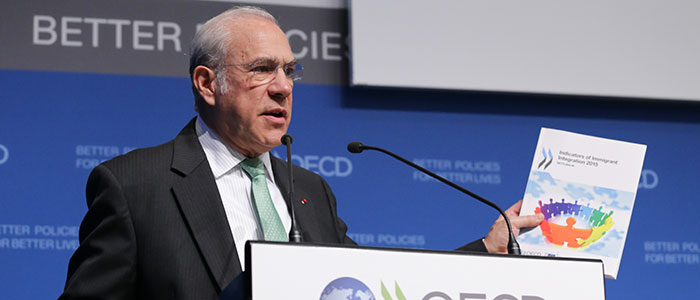angel_gurria_oecd.jpg

Angel Gurría, OECD secretary general, stressed the important role played by international organisations. Credit: OECD/Andrew Wheeler
In a study published yesterday, which examined the practices of 50 global or regional organisations, including IFAC, a host of UN bodies and the OECD itself, the think-tank reported that international organisations are key to wellbeing in an increasingly interconnected and, lately, distrustful world.
OECD general secretary Ángel Gurría highlighted that today’s challenges – from climate change and terrorism to tax avoidance – transcend borders, while many countries grapple with the same problems, such as mounting populism and public mistrust.
“Countries are facing growing pressure to deliver better policies to manage globalisation better. At the same time, the world is increasingly interconnected and policymaking cannot be pursued in isolation,” he continued.
“Countries must coordinate their approaches to achieve together their shared public interest objectives at lower costs. International organisations provide the platform and catalyse the expertise needed to support countries in their collective policy action to manage the undesired effects of globalisation.”
He highlighted the “crucial role” such organisations have to play in setting high standards for the protection of social, environmental and human rights, and overcoming the fragmentation that undermines the effectiveness of domestic, bilateral or regional action.
He went on to stress that, in a world increasingly characterised by mistrust in institutions, such organisations must strive to be more “relevant, accountable and responsive”.
The study suggested organisations work to: strengthen the effectiveness of their instruments; maximise the impact of standards through better monitoring and evaluation, as well as that of international policies by keeping track of their “afterlife”; increasing transparency and inclusiveness to build trust; and improve coordination with one another.













